Let's Talk
Palestinians and the truth
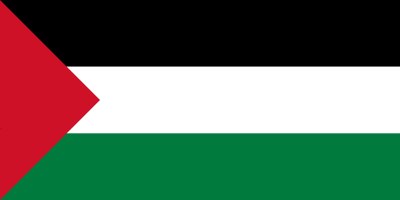
Every year the world hears about a group calling themselves “Palestinians.” In June 1967, so the story goes, the Israelis pushed them out of their homeland. (Or did the Jews throw them out in 1949?) Western people accept that narrative without judging it for accuracy. They do this because they don’t know the true history of the region.
Who were the Palestinians?
Beginning in 2002, a certain writer began a series of provocative essays about “Palestine” and “Palestinians.” This writer published them under the false name “Yashiko Sagamori.” (The first name could have come from a Japanese trademark for twin-lens reflex cameras, the Yashica line.) Whatever his (or her) origin, “Yashiko Sagamori” asks some pointed questions: (paraphrased from the original)
- Who founded a country called “Palestine,” and when?
- What borders did they draw?
- What cities did they build? (And which did they build as their capital city?)
- What industry did they build their economy on? Farming? Fishing? Ironworking?
- What government did they have?
- Before Yasser Arafat (or, for that matter, Haj Amin al-Husseini, Grand Mufti of Jerusalem), can anyone name even one supreme leader of that country?
- Has any other country, or superpower, or group of nation-states, recognized the “Palestinians” as a country, with no quibbling?
- What language did Palestinians speak?
- What sort of gods did they worship, and how did they worship them?
- How did they name their monetary unit? Can anyone quote a rate-of-exchange between this unit and, say, the US dollar, German mark, GB pound, Japanese yen, or Chinese yuan?
- What brought about the downfall of Palestine, and when?
- When could one call the Palestinians a “proud” nations? What gave them their “pride”?
And:
If the people you mistakenly call “Palestinians” are anything but generic Arabs collected from all over – or thrown out of – the Arab world, if they really have a genuine ethnic identity that gives them right for self-determination, why did they never try to become independent until Arabs suffered their devastating defeat in the Six Day War?
Or for that matter, before the Arab Legion tried to shove the Jews into the sea in 1948-9, and failed miserably?
Palestinians: real history
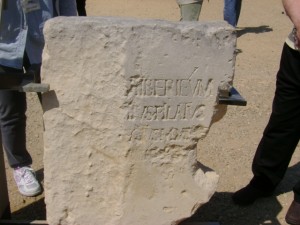
A dedicatory stone credits Pontius Pilate, Prefect of Judea, with erecting the Hippodrome in Caesaria Maritima. CNAV File Photo (March 30, 2011)
Those who call themselves “Palestinians” can’t or won’t answer these questions. But those who know the thousands of years of the history of the region, can.
“Palestine” never existed as a country. Not, that is, with Arabic people living in it. Emperor Hadrian of Rome gave the region the name Palestine in 135 A.D. (or C.E., if you don’t believe in the Lord, as in “Year of”). Hadrian ordered his legions to disperse the Jews throughout his Empire in that year. Simon bar Khochva rebelled against Rome. (And to this day the Seder Olam Rabah lists him as the Messiah and figures the Years of the World on that listing.) Hadrian’s legions put him down and scattered the Jews. They then renamed their province of “Judea” to “Palestina.”
Palestine comes from Philistia. In fact the Arab, in referring to Palestine, call it Filastin. But the Arabs do not descend from the original Philistines. The name Philistine means an outsider, an immigrant, or an invader. For these generic Arab residents, Philistine seems as good a name as any. One could then call them a third generation of Philistines, after the Avvites of Abraham and Isaac’s day, and the Caphthorites who displaced the Avvites during the Sojourn of the Israelites in Egypt.
But now the champions of the Palestinians have a problem. “Philistia,” in the days of the Hebrew Judges and Kings, never occupied a contiguous area in modern Judea and Samaria (“The West Bank”). In fact, in those days nation-states consisted of cities and their immediate surroundings, not of vast tracts of land far removed from any one city. They did not know the concept “territory” as we know it. So any two monarchs might control groups of cities in overlapping territories! At most they occupied the present Gaza Strip and a few lands north and east of it. And by the time the Arabs even reached that far, the Caphthorites no longer lived there. And hadn’t lived there since Nebuchadnezzar the Great eliminated them.
The Philistines of old do not seem to have had one capital city. They had the Five Cities: Ashdod, Ashkelon, Ekron, Gath, and Gaza. Of the Five, only Gaza City remains to these third-generation Philistines. Not Jerusalem. Furthermore, Ashdod, Ashkelon, Ekron, and Gath existed mostly as ruins when the first Zionists arrived. (Gath still does not work as a proper city. It exists only as ruins.)
The Caphthorites fished for their living. And they worshiped a god in the shape of a walking, talking fish: Dagon. The Arab Palestinians worship Muhammad, not Dagon.
The Caphthorites always had a monarchy, and a nobility: the Lords of the Five Cities. The modern Palestinians had no self-government for over a thousand years. The Romans brought them in after chasing the Jews out. The various rulers who succeeded the Romans, including the Mamluks, the Crusader Kings, and especially the Ottoman Turks, never offered them self-government.
In fact, the first Zionist pioneers came to an empty land. The Turks sold them that land, and laughed all the way to the bank. Like Sanballat of old (see Nehemiah chapter 5), they said one to another, “What will these feeble Jews do with all that swamp and desert?” Plenty. They planted eucalyptus to drain the swamp naturally, and invented drip irrigation and other techniques to reclaim the desert. Then Arabs came, looking for jobs.
As to language: the Caphthorites spoke a Semitic language. The Arabs, of course, speak their own language. Eliezer Yitzak Perelman, alias Eliezer Ben-Yehuda, single-handedly taught his fellow Jews to speak Hebrew every day, not merely in clerical school or when reading the Tanakh. The British Mandatory authorities, in 1922, recognized Hebrew as an official spoken language.
Grand Mufti Haj Amin al-Husseini became the first leader of any “Palestinians.” Even then, the region had that name only because the British owned it. They called it “British Mandatory Palestine,” after they had won World War One. And the Grand Mufti called for mass murder. He even cooperated with Adolf Hitler. After that he came back to Jerusalem, to say, “I declare a holy war! Murder them! Murder them all!”, talking about the Jews.
Yasser Arafat eventually succeeded him. But in fact the “Palestinians” did nothing more than furnish guerilla shock troops to Egypt, Jordan, and Syria. Then Egypt started the Six-day War. And Israel finished it.
The “Palestinians” have no central bank, and no monetary unit. Even the so-called Palestine National Authority never created one. Never in history have any “Palestinians” had any unique money. They used Roman or Turkish money. Now, ironically, they use American money!
The last question from the pseudonymous “Yashiko Sagamori” asks why, not what. That can have no answer.
In sum
“Palestinians” do not qualify as a national “people.” At best they sit on a territory overlapping that of two generations of invaders from the sea. At worst they have let certain great powers use them as an excuse to rag on Israel in general, and the Jews in particular.
Terry A. Hurlbut has been a student of politics, philosophy, and science for more than 35 years. He is a graduate of Yale College and has served as a physician-level laboratory administrator in a 250-bed community hospital. He also is a serious student of the Bible, is conversant in its two primary original languages, and has followed the creation-science movement closely since 1993.
-

 News23 hours ago
News23 hours agoRolling the Dice on Republicans: Has the Right Become Delusional?
-
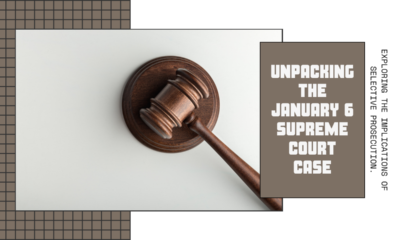
 Executive18 hours ago
Executive18 hours agoJanuary 6 case comes down to selective prosecution
-

 Civilization23 hours ago
Civilization23 hours agoBiology, the Supreme Court, and truth
-

 Executive2 hours ago
Executive2 hours agoWhy Fatal Police Shootings Aren’t Declining: Some Uncomfortable Facts
-

 Entertainment Today3 hours ago
Entertainment Today3 hours agoWaste of the Day: Throwback Thursday: Millions Went To Video Game ‘Research’
-

 Constitution1 hour ago
Constitution1 hour agoEquality Under the Law and Conflicts of Interest in New York
-

 Guest Columns50 mins ago
Guest Columns50 mins agoWhat Was Won in No Labels’ Crusade
-
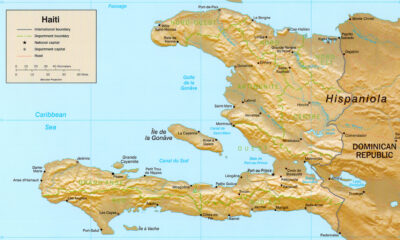
 Civilization28 mins ago
Civilization28 mins agoPresident Biden Must Not Encourage Illegal Mass Migration From Haiti









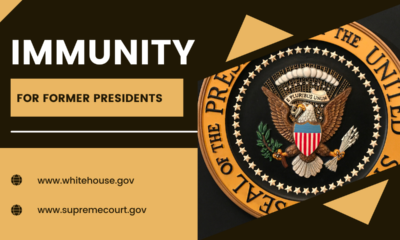



Dennis Fryczewski liked this on Facebook.
Robert Houlst liked this on Facebook.